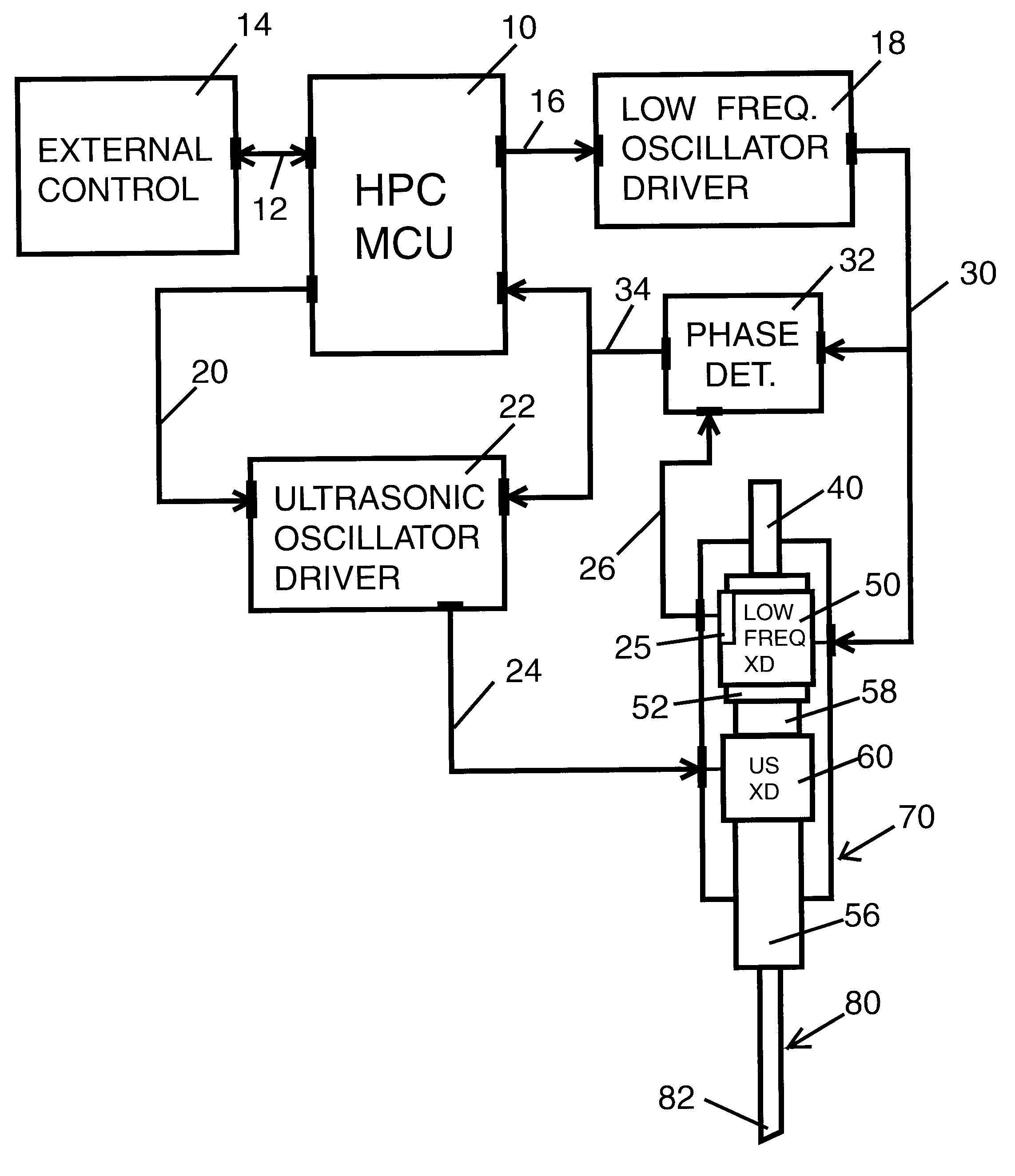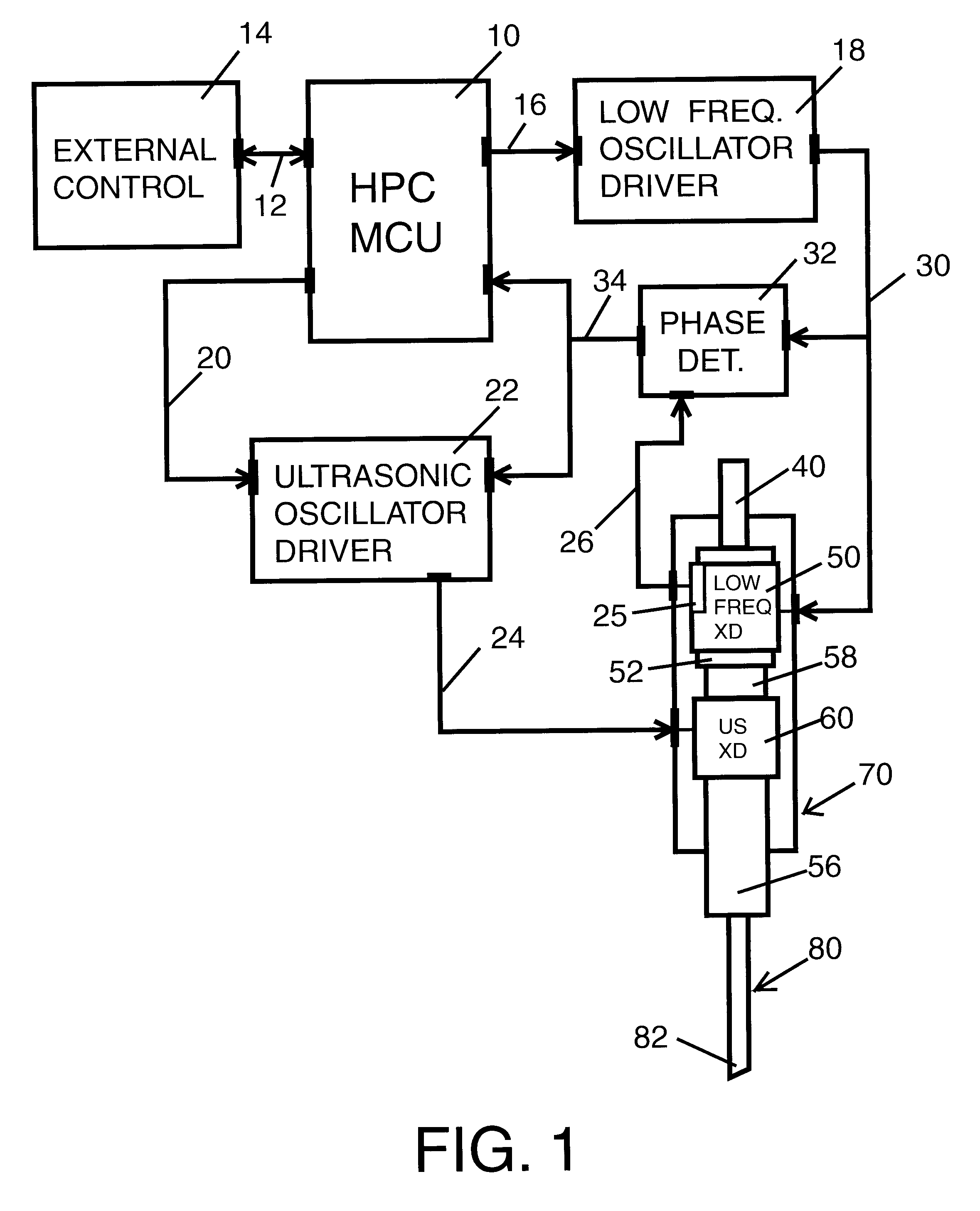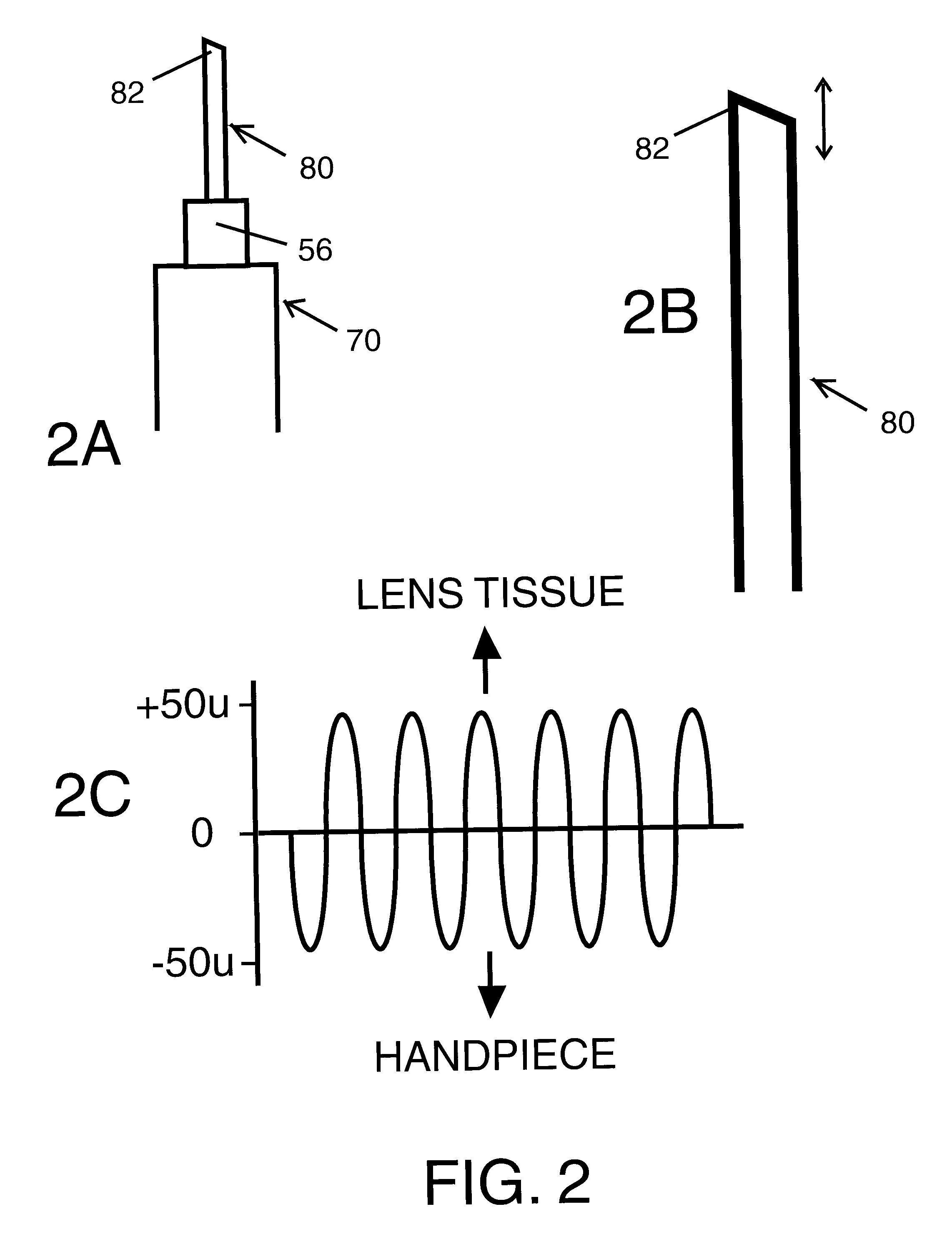Repetitive progressive axial displacement pattern for phacoemulsifier needle tip
a phacoemulsifier and axial displacement technology, applied in the field of motion control of tissue emulsifier needles, can solve the problems of undesired cavitation bubbles and thermal injury of ocular tissues, and achieve the effects of reducing the undesired thermal and cavitation effects, improving the efficiency of a phacoemulsifier system, and increasing the exposure of lens fragments
- Summary
- Abstract
- Description
- Claims
- Application Information
AI Technical Summary
Benefits of technology
Problems solved by technology
Method used
Image
Examples
Embodiment Construction
[0032]As shown in FIG. 1 a hand-piece controller unit 10 interconnects through a connector 12 to a host external controller 14. Hand-piece controller unit 10 interconnects through a connector 20 to an ultrasonic oscillator driver unit 22. Hand-piece controller unit 10 interconnects through a connector 16 to a low frequency oscillator driver unit 18.
[0033]Ultrasonic oscillator driver unit 22 connects through connector 24 to an ultrasonic electro-mechanic transducer 60 located inside phacoemulsification surgical hand-piece enclosure 70. Low frequency oscillator driver 18 connects through connector 30 to a low frequency electro-mechanic transducer 50 located inside phacoemulsification surgical hand-piece enclosure 70. Low frequency oscillator driver 18 also connects through connector 30 to low frequency phase—position detector circuit 32.
[0034]Low frequency electro-mechanic transducer 50 has an attached low frequency position sensor 25 that provides a low frequency motion component pha...
PUM
 Login to View More
Login to View More Abstract
Description
Claims
Application Information
 Login to View More
Login to View More - R&D
- Intellectual Property
- Life Sciences
- Materials
- Tech Scout
- Unparalleled Data Quality
- Higher Quality Content
- 60% Fewer Hallucinations
Browse by: Latest US Patents, China's latest patents, Technical Efficacy Thesaurus, Application Domain, Technology Topic, Popular Technical Reports.
© 2025 PatSnap. All rights reserved.Legal|Privacy policy|Modern Slavery Act Transparency Statement|Sitemap|About US| Contact US: help@patsnap.com



